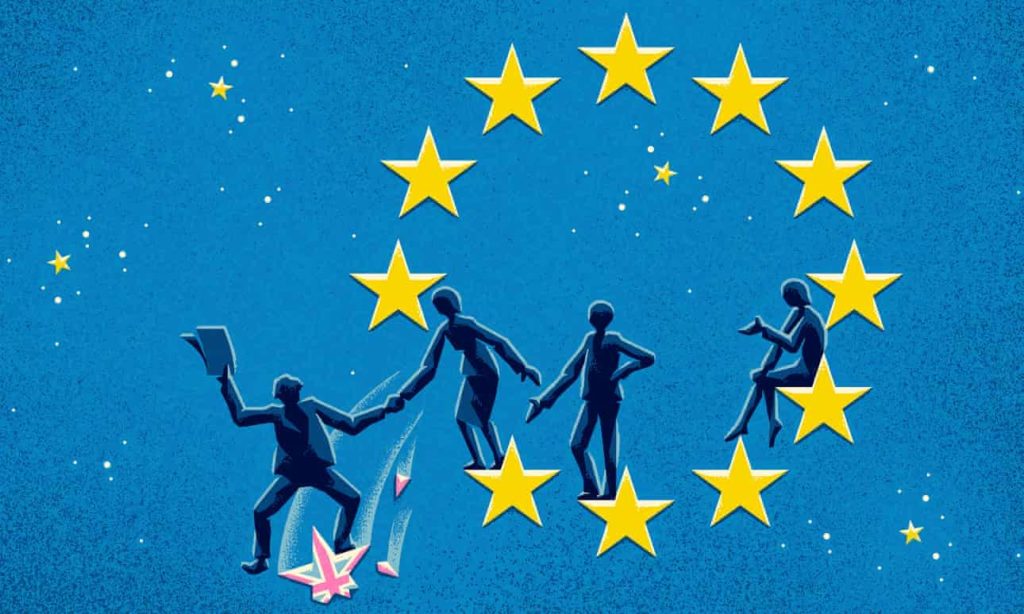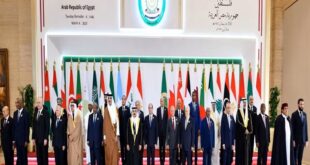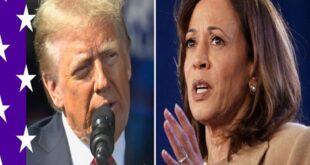Brexit was never fundamentally an economic project. It was always more about what it said on the ballot paper in 2016. Brexit was about ceasing to be a member of the European Union. Leavers understood that. Remainers, in contrast, still struggle with it. To a lot of remainers, Brexit had to be a proxy for something else: anti-immigrant feeling, maybe, economic disempowerment, or post-imperial nostalgia. Those issues were not irrelevant to Brexit, but they were never the main point.

Leaving the EU was an emotionally charged political proposition, not an economic one. It was a desire rooted in a vision of British sovereignty richly marinaded in a heady mix of nostalgia and bogus victimhood, fanned by Britain’s media, and which made the enormous error of confusing sovereignty with power. The reality of that error will come home to roost in the months and years ahead. But Brexit was never about the price of potatoes or cars. In the end, it wasn’t even about standing up for Britain’s one genuine shared diplomatic triumph of recent decades, the Northern Ireland peace agreement.
Britain leaves the EU with its sovereignty compromised, its economy weakened – and its leader walking a tightrope
The initial hoopla on Christmas Eve about the trade deal with the EU must be seen from that perspective. Stupid headlines about a Merry Brexmas conceal the fact that what is being celebrated is in fact a thin deal and bad economic news for Britain. But economics has always been secondary in Brexit. Trade deals, like economic arrangements more generally, are not Brexit’s first-order objectives but its second-order consequences. If free trade had been the objective, Britain would have stayed in the single market and the customs union. It was nonsense for Boris Johnson to pretend on Thursday that the EU deal will create “a giant free-trade zone”. There was one there already. And this deal says little about services.
What was finally agreed this week is a worse trade deal than we had as an EU member state. Britain has expelled itself from the EU because sovereignty is what really matters in Brexitland, not trade. As a result, for probably the first time in human history, these have been trade negotiations that aim to take the trading partners further apart, not closer together. That would be difficult enough with goodwill, and has been doubly difficult because of Britain’s unrealistic tactics. But that is the looking-glass world Britain now inhabits. If taking back control means giving up some of the prosperity, along with the other benefits, that went with EU membership – and it certainly does – then the leavers say: so be it.
It is an inconvenient and ironic truth that all trade deals, including this one, will involve a compromise of sovereignty for mutual benefit. That is what making deals means. Ursula von der Leyen was spot on when she described “pooling our strength and speaking together” as what sovereignty means in practice in the 21st century. This deal is absolutely no different. This truth is, of course, being brushed over in the immediate media silliness that burst out on Thursday. But when the dust settles and MPs come back to Westminster to debate the deal next week, they will see that Britain has had to give up some sovereignty in order to be able to go on trading with by far our largest and nearest market on preferential terms.
The only sense in which this amounts to a triumph for Johnson is that it completes the detachment of the United Kingdom from the EU that a majority of voters opted for four and a half years ago. That is undeniably important. It is the consummation of Johnson’s lifelong campaign of lies about the EU. It may, in fact, mean that Johnson’s premiership now has no other particular purpose. But the deal involves considerable political risk for the government, because the economics of Brexit and the politics of Brexit have always pulled Johnson in opposite directions.
Johnson is nothing like as clever as he thinks he is, but he is not stupid either. He knows that geographical proximity and established supply networks matter massively in trade, and therefore that trade with the EU cannot simply be abandoned. He knows that the Office for Budget Responsibility calculated that failure to strike a deal would have led to lost GDP potential of more than 5% over 15 years. He knows that small, medium and large businesses are only surviving on their margins as the Covid pandemic deepens again. He knows that, post-Covid, the UK will face huge fiscal pressures that would be much worse if there was no deal.
And he knows something else too. Even if part of him would prefer to ignore it, he knows that no deal would have handed Nicola Sturgeon the biggest and best Christmas present she could have dreamed of in her efforts to take Scotland out of the UK. As Brexit begins to fade in the prime minister’s rearview mirror next year, the task of saving the union looms ever closer. All of these factors always pointed towards a deal.
Yet there was always a party-political logic at work in Johnson’s calculations too, and this pulled him in the opposite direction, towards no deal. Johnson is, after all, not just the prime minister of the UK. He is also the leader of the volatile, fanatical and potent leave movement. This is what made him the leader of his party. It is the reason he won the 2019 election. And the leave movement would have been more than happy with no deal, because a complete break with Europe is in many ways the sovereigntists’ ideal.
So getting the choreography of the EU trade deal right has been critical. That would have been true even if this was a normal year and this was a normal Christmas. But the circumstances of 2020 – with Johnson’s Covid handling the subject of widespread and persistent criticism, including from within his party, and now amid the Christmas trucking chaos in Kent – have made that doubly vital.
Johnson’s original strategy after the 2019 election, urged on by Dominic Cummings, was to demand rigid party discipline, cabinet unity, the bypassing of parliament and, above all, to starve Nigel Farage of any political oxygen to shout betrayal. Covid severely disrupted that approach but did not derail it. Yet when the pandemic threatened to get out of hand in the autumn, control of the optics became even more crucial. The process had to go right down to the wire, with at least one apparent collapse, to ensure as little time as possible for party resisters to organise and for Farage to build up a revolt. That is what happened.
Nevertheless, none of this guarantees that Johnson is now home and dry on the EU trade deal. For one thing, Brexit will never cease to divide Britain. The issue will never be settled. Meanwhile the extravagant pre-Christmas exercise in brinkmanship suggests that there is in fact plenty in the deal for backbench zealots and Farage to object to. Von der Leyen’s comment that this is a fair, balanced and responsible deal is not what the MPs in the European Research Group want to hear.
Even at the very end of the year, even with coronavirus spreading, even with most minds focused on the festive season and even with most of the press dutifully portraying Johnson as a commanding leader, things could fall apart in the coming days. One should never forget that, among all his many qualities, Johnson is a compulsive political risk-taker. Given the ferocity of the emotions that Brexit will always arouse, this deal may prove a much bigger risk than anyone, including Johnson, yet realises.
By Martin Kettle is a Guardian columnist




 World Opinions Débats De Société, Questions, Opinions et Tribunes.. La Voix Des Sans-Voix | Alternative Média
World Opinions Débats De Société, Questions, Opinions et Tribunes.. La Voix Des Sans-Voix | Alternative Média





